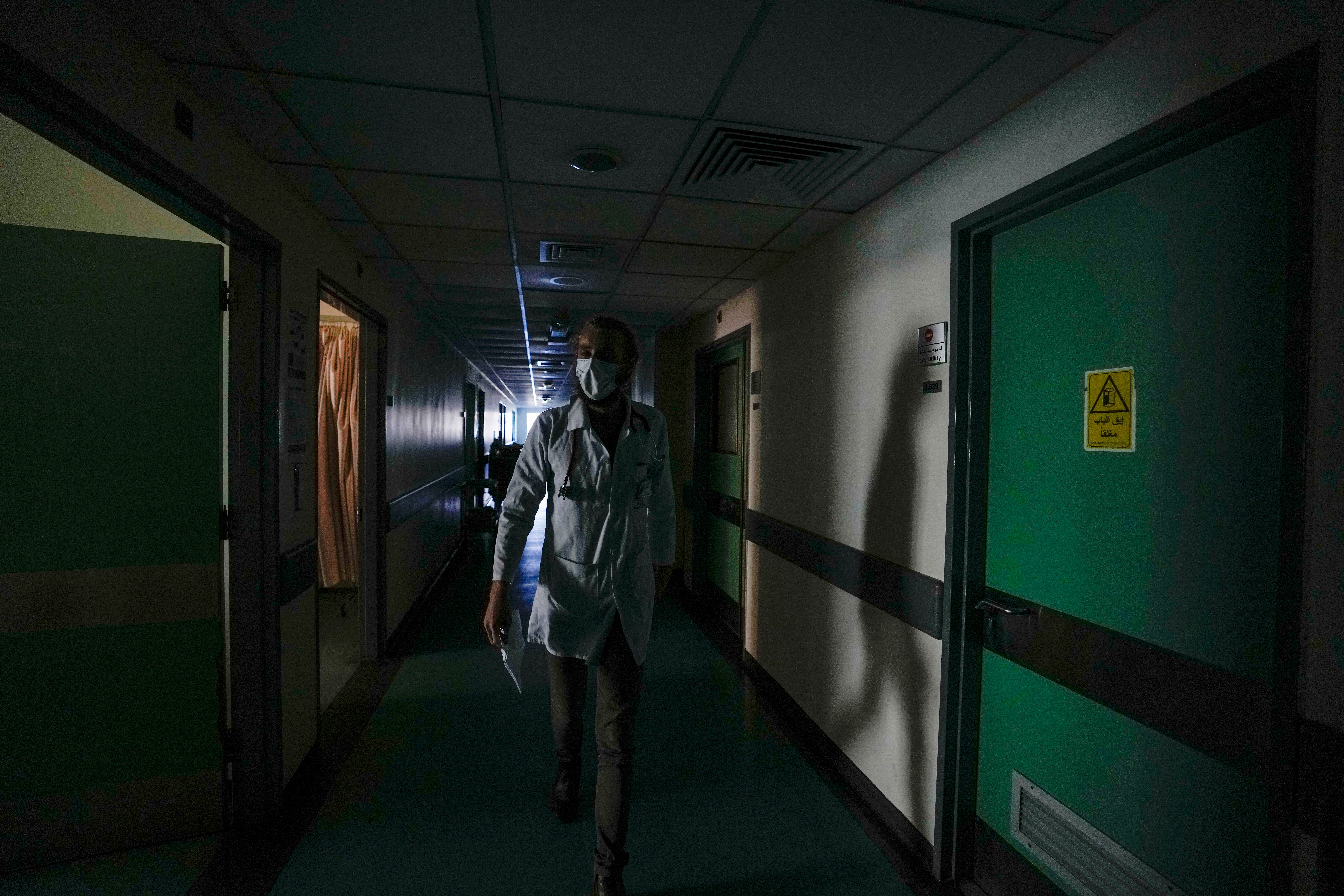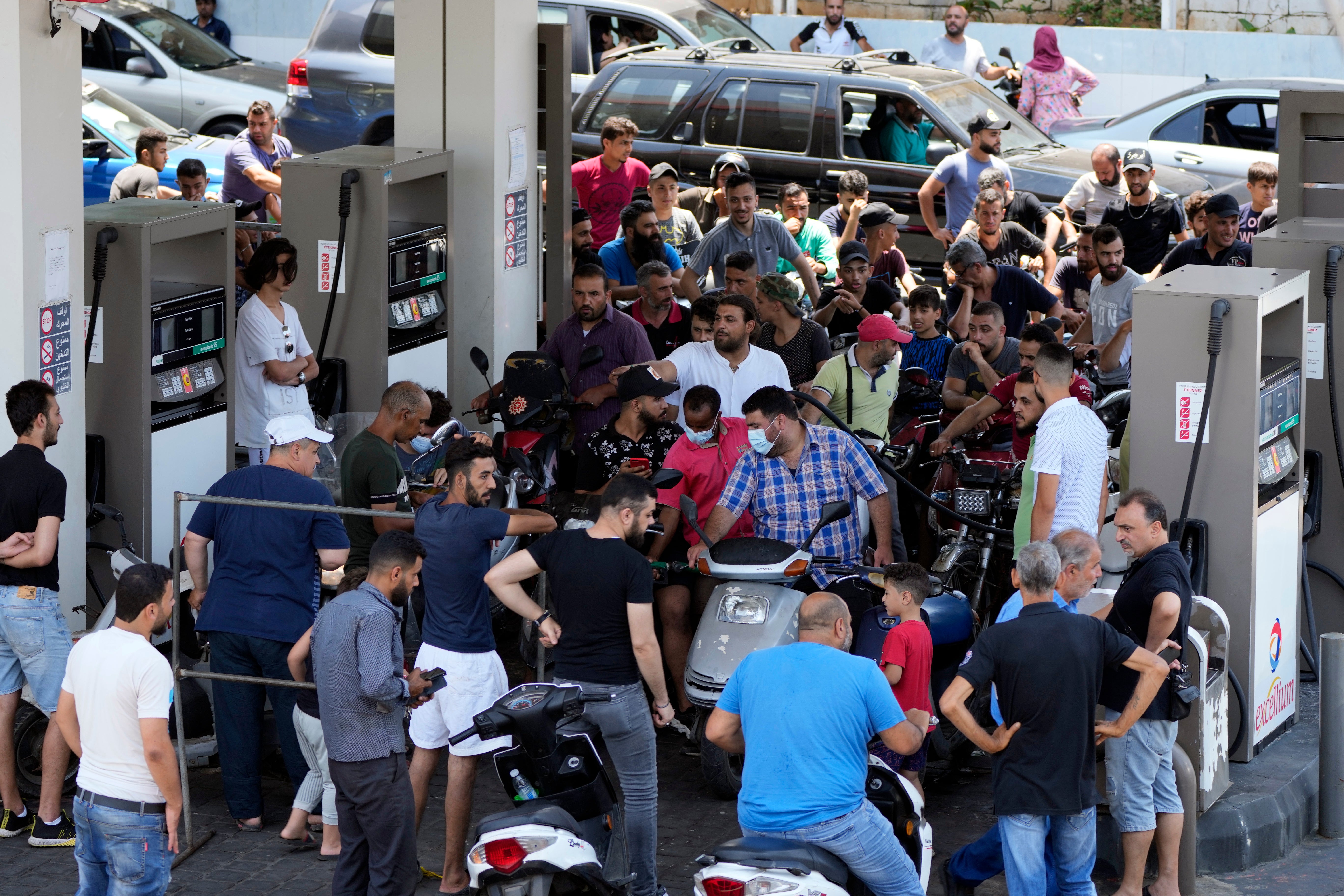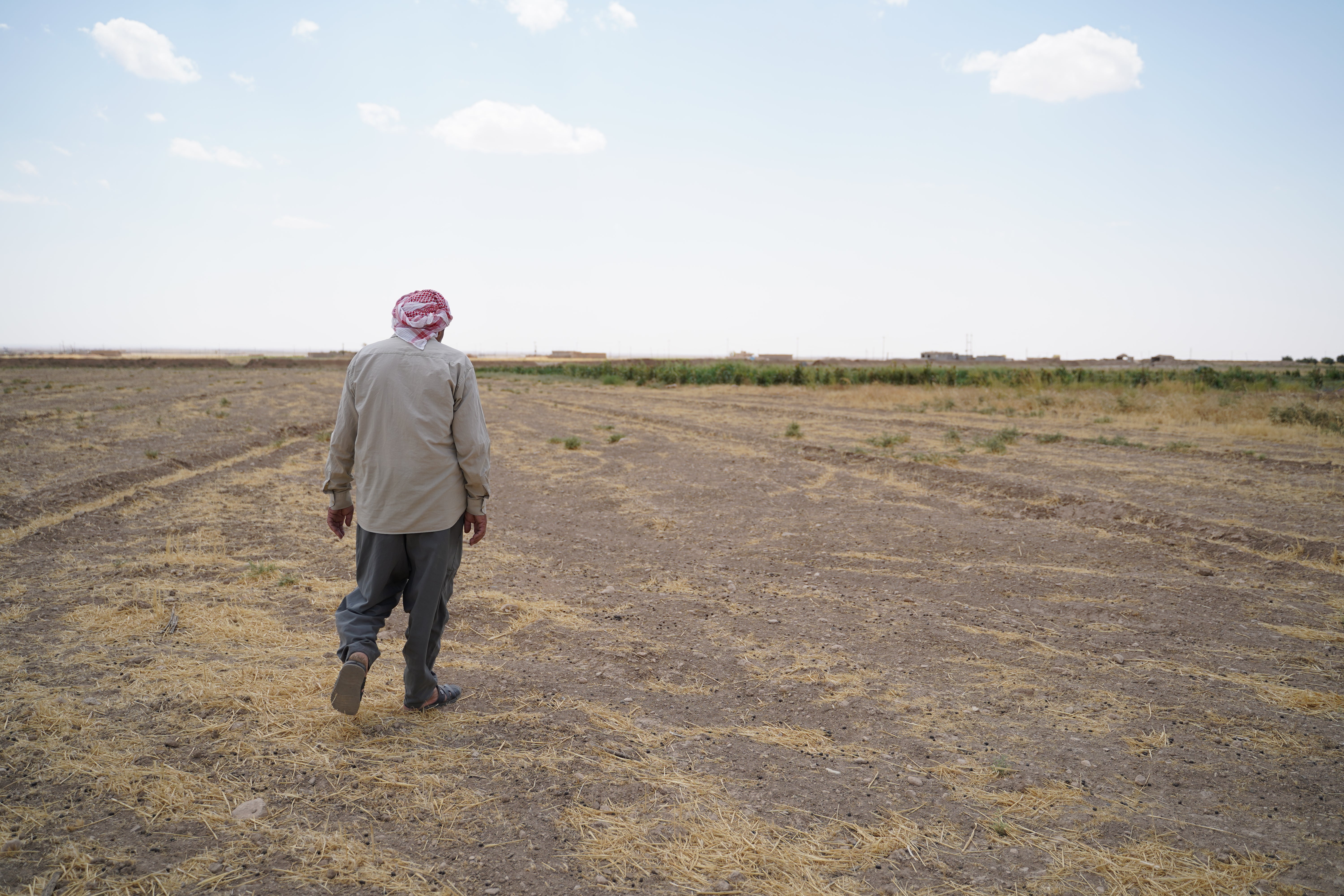Fuel, medicine and water shortages push Lebanon’s healthcare system to brink of collapse
UN says 4 million will lose access to water in coming days as fuel crisis worsens

Your support helps us to tell the story
From reproductive rights to climate change to Big Tech, The Independent is on the ground when the story is developing. Whether it's investigating the financials of Elon Musk's pro-Trump PAC or producing our latest documentary, 'The A Word', which shines a light on the American women fighting for reproductive rights, we know how important it is to parse out the facts from the messaging.
At such a critical moment in US history, we need reporters on the ground. Your donation allows us to keep sending journalists to speak to both sides of the story.
The Independent is trusted by Americans across the entire political spectrum. And unlike many other quality news outlets, we choose not to lock Americans out of our reporting and analysis with paywalls. We believe quality journalism should be available to everyone, paid for by those who can afford it.
Your support makes all the difference.Crippling fuel, medical and staff shortages are pushing Lebanon’s healthcare system to the brink of collapse, officials have warned, as the United Nations says 4 million people could lose access to safe water in the next few days.
The tiny Mediterranean country is in the grip of one of the worst economic collapses in the last 150 years, according to the World Bank.
The crisis, rooted in decades of corruption and mismanagement, has seen the country’s currency lose 90 per cent of its value, and has caused massive shortages in imported essentials like diesel and medicines, right in the middle of the pandemic.
Firass Abiad, head of Lebanon’s main coronavirus hospital Rafik Hariri University Hospital (RHUH), tells The Independent that essential medical supplies, such as cancer medicines and antibiotics, are dwindling, meaning medical centres across the country have had to halt some treatments, endangering lives.
Making matters worse is the fact that the hospital – like other hospitals – has had no mains power for the entirety of the past week, meaning it has had to run entirely on diesel generators. Diesel, sold on the black market at five times the official price, is running out, so the hospital is rationing electricity and downsizing bed capacity by 15 per cent.
“There are diesel shortages, fuel shortages, shortages of medicines and staff. We have had to interrupt the treatment of cancer patients because of a lack of medicines, but even that is secondary to the fuel crisis,” Dr Abiad says.
Chronic petrol shortages have prevented medics from getting to work at a time when the hospital is already understaffed: a third of RHUH’s doctors, and 15 per cent of its nursing staff, have moved overseas in the last year because of the deteriorating conditions.
“We are still in freefall; in fact we are accelerating,” Dr Abiad adds. “Even if you try to sort out one aspect of the problem, another aspect will come and take over.”
His warnings come just over a week after the American University of Beirut Medical Centre put out a plea for fuel on social media, saying that without it the hospital would be forced to shut off its generators, killing dozens of people on ventilators and nearly 200 who needed kidney dialysis. Diesel for the generators was eventually sourced with just a day to spare.
Hospital administrators have also told The Independent that they are stockpiling water, amid warnings from the UN that 4 million people in the country of just 6 million will lose access to safe water in the coming days, as the country’s chief electricity provider, Electricite du Liban (EDL), has halted main power service lines to water authorities.
Over the weekend, Unicef’s executive director Henrietta Fore called for the urgent restoration of a power supply, saying it was the only solution to the crisis.
“Last month, Unicef warned that more than 71 per cent of the population of Lebanon could run out of water this summer. Since then, this perilous situation has continued, with critical services, including water and sanitation, power networks and healthcare, under huge strain,” she added.
Her words echoed statements by Najat Rochdi, UN humanitarian coordinator for Lebanon, a week earlier, warning that wastewater treatment systems have had to cut back on their operations, jeopardising environmental and public health.

The escalating financial crisis in the country, which experts blame on rampant corruption, clientelism and incompetence, already sparked an uprising in 2019.
The arrival of the pandemic only exacerbated the problems, before one of the world’s largest ever non-nuclear explosions blew up swathes of the capital last August.
The government resigned shortly after, but more than a year later the ruling political elite has yet to agree on the make-up of a new cabinet, leaving Lebanon rudderless during its collapse.
With vanishing foreign reserves, the caretaker authorities have had to slash subsidies including those on fuel, which initially sparked hoarding and crippling shortages and has seen prices rise by 66 per cent.
And so amid the misery, citizens are struggling to get through the day, and many have relied on help from abroad.
Cripplingly expensive cancer medications are in such short supply that patients and family members have called for a sit-in outside the United Nations Economic and Social Commission for Western Asia building in Beirut.
“Until now, three of the cancer patients we have supported have died after they hadn’t been able to get treatment for a month and a half,” says Hany Nassar of the Barbara Nassar Association for Cancer Patient Support, which called the protest.
The organisation, founded in memory of Nassar’s wife, who passed away from cancer in 2014, helps cancer patients get access to and pay for their medication, which can cost $10,000 (over £7,000) per cycle.
This is a massacre; we have thousands of cancer patients who will die if they don’t get treatment
“This is a massacre; we have thousands of cancer patients in Lebanon who will die if they don’t get treatment,” he adds.
Meanwhile, across the border in neighbouring Syria and Iraq, the Norwegian Refugee Council (NRC) has warned that a water crisis and drought threatens 12 million there, and may see food production subsequently collapse.
Across the region, rising temperatures, along with record low levels of rainfall and drought, are depriving people of drinking and agricultural water, the group said on Monday.

The conditions are causing disruption to the supply of electricity, too, as dams run out of water, which in turn affects the operation of essential infrastructure including health facilities.
The statement added that in Syria, at least 400 sq km of agricultural land risks total drought, while two dams in the north of the country, providing 3 million people with electricity, face imminent closure.
In Iraq, large swathes of farmland, fisheries, power production facilities and drinking water sources have been depleted of water.
“The total collapse of water and food production for millions of Syrians and Iraqis is imminent,” said Carsten Hansen, NRC’s regional director.
“With hundreds of thousands of Iraqis still displaced, and many more still fleeing for their lives in Syria, the unfolding water crisis will soon become an unprecedented catastrophe, pushing more into displacement.”





Join our commenting forum
Join thought-provoking conversations, follow other Independent readers and see their replies
Comments